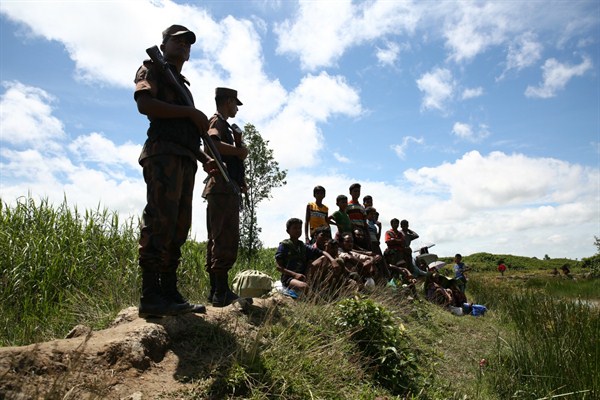YANGON, Myanmar — Violence has again engulfed Myanmar’s volatile Rakhine state, killing scores of people and stoking fears that the long-running crisis there has grown more intractable and more likely to foster radicalization. Many had hoped that Myanmar’s democratically elected government, which took over 18 months ago amid a transition from military rule, could take steps to alleviate the conflict and end the underlying human rights abuses of the Rohingya minority. But the rapidly deteriorating security situation, called predictable and preventable by the United Nations, has emerged as a key stumbling bloc for Nobel laureate Aung San Suu Kyi’s administration, overshadowing recently proposed measures to redress grievances.
Renewed insurgent attacks last week set off the bloodiest fighting in Rakhine in at least five years, pitting rebels from Myanmar’s Rohingya Muslim minority waging what some called their “last fight” against a military accused of deliberately blurring the line between “terrorists” and civilian “abettors.” As of Thursday, less than a week after the clashes erupted, the confirmed casualties totaled at least 110, including dozens of militants, 12 security officials and an unknown number of civilians. Human rights workers fear the toll is much higher. Meanwhile, over 4,000 predominantly Buddhist villagers have been evacuated, and 27,500 Rohingya have poured over the border into Bangladesh.
Rohingya insurgents known as the Arakan Rohingya Salvation Army, or ARSA, claimed responsibility for pre-dawn attacks last week on border police outposts in Rakhine, which runs along the Bay of Bengal in western Myanmar. Observers say the assault was both much larger and more sophisticated than the group’s initial raids last October, which prompted a thundering military response—and with it, allegations of serious human rights abuses.

